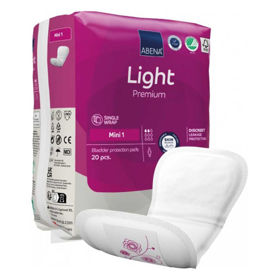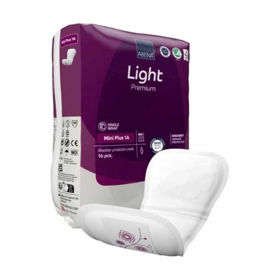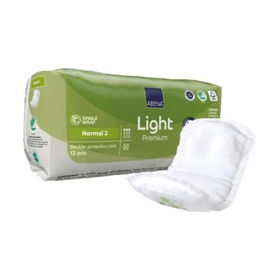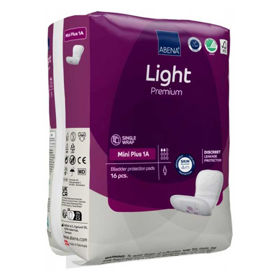Vprašanje stranke:
Ali obstajajo plenice za odrasle osebe, ki imajo težave z uhajanjem urina? Vprašanje anonimne stranke
Odgovor farmacevta:
Da, seveda obstajajo plenice tudi za odrasle. Te plenice so namenjene posameznikom, ki imajo težave s inkontinenco ali nezmožnostjo nadzora svojega mehurja. Obstajajo različne vrste plenic za odrasle, od lahkih absorbentov za rahlo inkontinenco do težjih plenic za močnejše uhajanje urina. Plenice za odrasle so običajno izdelane tako, da zagotavljajo visoko stopnjo absorbtivnosti, udobja in diskretnosti.
Nekatere plenice so oblikovane kot običajno spodnje perilo in se enostavno namestijo, medtem ko so druge bolj podobne tradicionalnim plenicam in se pritrdijo s trakovi ali elastičnimi pasovi okoli pasu. Poleg tega so na voljo tudi vložki in obloge za odrasle, ki se lahko uporabljajo z običajnim spodnjim perilom za dodatno zaščito pred uhajanjem urina.
Ali se plenice za starejše lahko uporabljajo tudi za močno menstruacijo?
Plenice za odrasle so oblikovane za absorbiranje urina in niso posebej zasnovane za uporabo med menstruacijo. Čeprav lahko nekatere ženske uporabljajo plenice za odrasle med menstruacijo kot začasno rešitev ali v primerih močne menstruacije, pa niso najprimernejša izbira za dolgoročno uporabo med menstruacijo.
Plenice za odrasle so običajno izdelane iz materialov, ki so bolj primerni za absorbiranje tekočine, kot je urin, in morda niso dovolj učinkovite pri absorbiranju menstrualne krvi. Poleg tega lahko nepravilna uporaba plenic za odrasle med menstruacijo povzroči nelagodje, draženje kože ali okužbe, saj niso zasnovane za te namene.
Namesto tega je priporočljivo uporabiti izdelke, ki so zasnovani za menstrualno nego, kot so higienski vložki ali tamponi. Obstajajo tudi alternativni izdelki, kot so menstrualne skodelice, ki so okolju prijaznejša in trajnejša možnost za menstrualno nego.
Kaj povzroča inkontinenco pri odraslih moških?
Eden najpogostejših vzrokov inkontinence pri moških je povezan s težavami s prostato. Povečana prostata (benigna hiperplazija prostate) ali operacija prostate, kot je radikalna prostatektomija zaradi raka prostate, lahko poškodujejo mišice in živce, odgovorne za nadzor nad mehurjem, kar lahko privede do uhajanja urina. Staranje lahko prav tako privede do oslabitve mišic medeničnega dna in zmanjšanja elastičnosti mehurja, kar lahko prispeva k inkontinenci. Tudi poškodbe hrbtenjače, operacije medeničnih organov ali druga kirurška poseganja v spodnjem delu trebuha tudi vplivajo na delovanje mehurja in povzročijo inkontinenco.
Drugi možni vzroki vključujejo:
- nevrološke bolezni,
- debelost,
- kronične bolezni,
- določena zdravila in
- kajenje.
Zanimivo branje: B kompleks Lekarna
Zanimivo branje: Salicilna kislina Lekarna








 Facebook
Facebook
 Instagram
Instagram
 info@moja-lekarna.com
info@moja-lekarna.com

